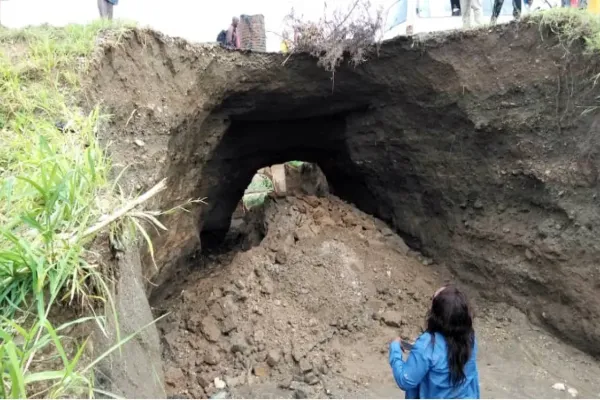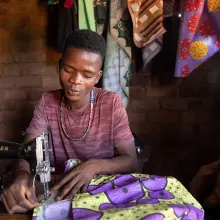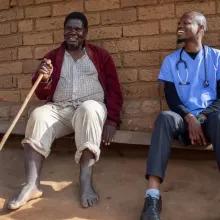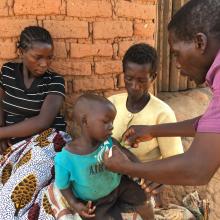It barely made the news, but a devastating tropical storm and cyclone swept through parts of Madagascar, Mozambique, and Malawi last week. In Malawi, Tropical storm Ana tore through the south of the country including the rural Neno District, where Partners In Health (PIH) has been working since 2006. Destroyed homes extend into the thousands, bridges and roads are washed out, and schools and health facilities are severely damaged. All this in an area in which electricity is scarce, there are few paved roads, and the average household income is less than $1,000 per year.
The deep structural poverty hasn’t prevented PIH and our government partners from building one of the strongest rural health systems in the country, mind you. Why should it? A network of more than 1,200 trained and compensated community health workers, of and from the communities where they work, reach more than 30,000 households with basic prevention, health education, and screening. The community health workers are connected to 15 health facilities where they can refer patients, and there are regular primary care clinics in communities for patients with communicable and chronic diseases. Neno’s AIDS program has had the best outcomes in the country for years.
PIH is well-positioned to respond to the food and shelter and health emergency in Neno right now, while also strengthening the underlying health system. We know many loyal donors to Partners In Health Canada would be ready to support this work, too.
That’s why it makes no sense that our internal discussions two days after the disaster focussed on whether we should even be reaching out to our supporters for their help. In other words, would we be able to raise enough funds to have our support not be an administrative burden on our Malawian colleagues?
It is a ridiculous conversation at a time of such urgent need. It’s also the frustrating reality of operating under Canada’s colonial regulatory framework for charities working in partnership internationally.
Because our staff in Malawi are local and are not directly employed by PIH Canada, the conditions under which we can send funds to support even urgent disaster efforts are highly restrictive. We must require our colleagues in Malawi to develop a specific budget unique to these funds, with specific reporting against that budget, all contained in a written agreement – before we can send a dime. The financial reporting tracking and administrative burden for our Malawian staff is immense for what might be a relatively small amount of money. If needs change, our colleagues must provide a specific budget for alternative uses and get our approval before any money can be spent. In the context of an emergency, where lives can be lost without fast action, this lack of flexibility to quickly pivot in the face of shifting priorities can cause great harm.
Under the guise of accountability, Canada’s framing actually insists that our Malawian staff are carrying out our PIH Canada projects, when the reality is we – PIH Canada staff and our donors – are privileged to support their lifesaving daily work.
PIH Canada staff in Toronto are on calls with our Malawian colleagues every week. We work closely together on shared initiatives, and together collect receipts and do financial reviews of all expenses as part of our internal controls and annual audit processes.
And yet, as the system is currently set up, if it were Canadians employed by PIH Canada doing the work – in other words, if we hired staff and flew them to Malawi for the cyclone response – we would face none of these burdens. It is the exact opposite of everything being talked about in the international development sector’s localization agenda and in broader conversations about decolonizing global health.
A bill currently before Parliament, the Effective and Accountable Charities Act spearheaded by Senator Ratna Omidvar, would go a long way toward addressing exactly these issues. The Effective and Accountable Charities Act needs to be passed this year with multi-party support because the last thing our Malawian leadership should be worrying about right now is satisfying the bureaucratic demands of Canadian funders.



